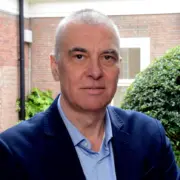Russian engineers are working on North Sea infrastructure for European companies. They map the seabed and have access to sensitive data on power and data cables and pipelines. While experts decry this as “shockingly naive,” the companies themselves see no risk, reports investigativeplatform Follow The Money.
According to their LinkedIn profiles, Russian engineers hold positions as hydrographic surveyors, geophysicists, or seismic data processors. Many work on a freelance basis on ships. Some still have their home address in Russia; others have since moved to a European country.
But hiring Russian staff for such sensitive work was “shockingly naive”, said Patrick Bolder, analyst specialised in defence at The Hague Centre for Strategic Studies. “That might have been possible ten years ago, but with the geopolitical tensions of recent years, you really have to be more careful,” he said.
That’s because, Bolder argued, the Russian government could simply extract sensitive information from the technicians. “The security services can do whatever they want. If they say ‘you are going to deliver this now’, as a Russian you have no choice,” he said. “The security services have pretty much all coercive means at their disposal. Either they are at your family’s doorstep. Or they send you to the front in Ukraine if you don’t cooperate.”
Bolder is one of the authors of the 2021 report “The High Value of the North Sea“, in which HCSS warned of the dangers to cricital infrastructure at sea.
The biggest problem is, according to multiple experts FTM spoke with, that there is still no visibility into all vulnerabilities of critical infrastructure. Such vulnerabilities, analyst Bolder said, lie in particular with the whole chain involved in the preparation, construction, and maintenance of energy and telecom infrastructure.
Checking where the vulnerabilities lie shouldn’t be left to companies, said Bolder. That’s because their main goal is to make money, he said.
Read the full article by Birte Schohaus and Dimitri Tokmetzis at Follow the Money (26 July 2024).






